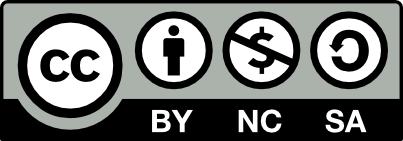/ Crime, power, and transformation of slavery in Santo Domingo, 1600-1650
Abstract
In the first decades of the seventeenth century, the important socioeconomic changes that took place in Hispaniola led to important transformation in the relationship between white and Afrodescendant residents, either free or enslaved. The Spanish elites on the island began assigning new responsibilities to enslaved men and women, including their participation in their conflicts with other members of the local elites, which included violent attacks, as well as murder attempts of their rivals. At the same time, free Afrodescendants tried to take advantage of their punctual collaboration with the elites to advance their own personal and communal interests. Despite such opportunities, these men and women often had to confront extraordinarily violent actions by the white population if they ever defied their subordinate status in colonial society.
Keywords:
Santo Domingo, Afro-descendants, slavery, race relations, violence, colonial hierarchiesReferences
Adelman. Jeremy et al. “From Borderlands to Borders: Empires, Nation-States, and the Peoples in Between in North American History”, American Historical Review 104, 1999, pp. 815-41.
Aram, Bethany. “Caribbean Ginger and Atlantic Trade, 1570–1648”. Journal of Global History 10-3, noviembre 2015, pp. 410-30.
Block, Kristen. Ordinary Lives in the Early Caribbean. Religion, Colonial Competition, and the Politics of Profit, Athens: University of Georgia Press, 2012.
Blumenthal, Debra. “Defending Their Masters’ Honor: Slaves as Violent Offenders in Fifteenth-Century Valencia”, en “A Great Effusion of Blood”? Interpreting Medieval Violence, eds. Mark D. Meyerson, et al., Toronto: University of Toronto Press, 2004.
_______. Enemies and Familiars: Slavery and Mastery in Fifteenth-Century Valencia, Ithaca: Cornell University Press, 2009.
Bourdieu, Pierre. “The Forms of Capital”, en Handbook or Theory and Research for the Sociology of Education, ed. John G. Richardson, Nueva York: Greenwood Press, 1986.
Cassá, Roberto. Historia social y económica de la República Dominicana, Santo Domingo: Alfa y Omega, 2000.
De la Fuente, Alejandro. “Sugar and Slavery in Early Colonial Cuba”, en Tropical Babylons: Sugar and the Making of the Early Atlantic World, 1450–1680, ed. Stuart B. Schwartz, Chapel Hill, 2004.
_______. Havana and the Atlantic in the Sixteenth Century, Chapel Hill, University of North Carolina Press, 2008.
Del Río Moreno, Justo L. et al., “El jenjibre: historia de un monocultivo caribeño del siglo XVI”, Revista Complutense de Historia de América 18, 1992, pp. 63-88.
Díaz, María Elena. The Virgin, the King, and the Royal Slaves of El Cobre: Negotiating Freedom in Colonial Cuba, 1670–1780, Stanford: Stanford University Press, 2000.
Eagle, Mark. “Chasing the Avença: An Investigation of Illicit Slave Trading in Santo Domingo at the End of the Portuguese Asiento Period”, Slavery & Abolition: A Journal of Slave and Post-Slave Studies 35, no. 1, 2014, pp. 99-120.
Gudmundson, Lowell et al., eds. Blacks and Blackness in Central America. Between Race and Place, Durham: University of North Carolina Press, 2010.
Hoffman, Paul E. The Spanish Crown and the Defense of the Spanish Caribbean, 1535–1585: Precedent, Patrimonialism, and Parsimony, Baton Rouge: Louisiana State University Press, 1980.
Landers, Jane G. Black Society in Spanish Florida, Urbana: University of Illinois Press, 1999.
_______. “Resistencia africana y trata de esclavos en el Caribe hispánico”, Revista del Caribe 40, 2003, pp. 32–46.
_______. ‘Cimarrón and Citizen: African Ethnicity, Corporate Identity, and the Evolution of Free Black Towns in the Spanish Circum-Caribbean’, en Slaves, Subjects, and Subversives: Blacks in Colonial Latin America, eds. Jane G. Landers et al., Albuquerque: University of New Mexico Press, 2006, pp. 111-46.
Lauderdale Graham, Sandra. Caetana Says No. Women’s Stories From a Brazilian Slave Society. Nueva York: Cambridge University Press, 2002.
López y Sebastián, Lorenzo E. et al., “La ganadería vacuna en la isla Española (1508-1587)”. Revista Complutense de Historia de América 25, 1999, pp. 11–49.
Lugo, Américo et al., Historia de Santo Domingo desde 1556 hasta 1608; edad media de la isla española, Ciudad Trujillo: Librería Dominicana, 1952.
Peña Pérez, Frank. Cien años de miseria en Santo Domingo, 1600-1700, Santo Domingo: Universidad APEC, 1985.
Proctor III, Frank “Trey”. “Slave Rebellion and Liberty in Colonial Mexico”, en Black Mexico: Race and Society from Colonial to Modern Times, eds. Ben Vinson III y Matthew Restall, Albuquerque: University of New Mexico Press, 2009.
Rodríguez Morel, Genaro. Cartas del Cabildo de Santo Domingo en el siglo XVI, Santo Domingo, Patronato de la Ciudad Colonial de Santo Domingo, 1999.
_______. Orígenes de la economía de plantación de La Española, Santo Domingo: Editora Nacional, 2012.
Sáez, José Luis. La Iglesia y el negro esclavo en Santo Domingo. Una historia de tres siglos, Santo Domingo: Patronato de la Ciudad Colonial de Santo Domingo, 1994.
Sevilla Soler, María del Rosario. Santo Domingo tierra de frontera (1750-1800), Sevilla, Escuela de Estudios Hispanoamericanos, 1980.
Shepherd, Verene A., ed. Slavery Without Sugar: Diversity in Caribbean Economy and Society Since the 17th Century, Gainesville: University Press of Florida, 2002.
Tomás y Valiente, Francisco. La venta de oficios en Indias (1492-1606), Madrid: Instituto de Estudios Administrativos, 1972.
Wheat, David. Atlantic Africa and the Spanish Caribbean, 1570-1640, Chapel Hill: University of North Carolina Press, 2016.
License
Copyright (c) 2022 Journal ECOS UASD

This work is licensed under the Creative Commons Attribution-Noncommercial-NoDerivs 4.0 International license. https://creativecommons.org









